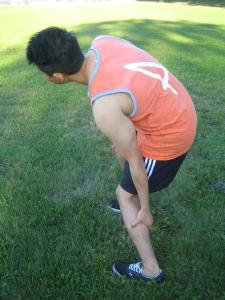Scabies is a skin issue that can cause a lot of discomfort. It is important to note that scabies is caused by mites that feed and breed under the skin. They cause uncomfortable itchiness with unappealing gray-colored lines on the skin that can be hard to manage. The scabies mites can be easily transmitted through skin-to-skin contact with an infected individual or prolonged contact with clothing or bedding that was used by an infected individual.
https://www.youtube.com/watch?v=JyWFlY7hhr4
The scabies mites burrow beneath the upper skin layer and feed on blood and eventually lay eggs. Remember that anyone can acquire scabies. It is easily spread in crowded living conditions. The crusted or Norwegian scabies is considered as a severe form that occurs among those who have weakened immune systems.
Life cycles of scabies mites
The scabies mites lay eggs under the skin that hatch into larvae after 4 days. After another 4 days, the mites are already mature and ready to lay another batch of eggs. Take note that this cycle continues until medical treatment is started. The scabies mites can thrive and breed on the skin for several weeks before the immune system develops an allergic reaction where the symptoms manifest.
What to watch out for
Scabies mites are characterized by their round bodies and eight legs. You cannot see the mites unless a microscope is used but you can easily find their bite marks and the elevated tracks where they lay their eggs.

Bites by scabies mites
The bites of the scabies mites are somewhat similar to rashes caused by dermatitis, poison ivy, syphilis or other insects. The bites look like blisters that are pink in color with elevated lumps and a clear top filled with fluid. Oftentimes, they appear in a row. An indicative sign of scabies are the bites along with the characteristic skin tracks. Remember that the mites can attack the whole body but prefer the skin around the feet and hands where the itchiness can be severe.
How to get rid of scabies
Since it is called the “seven-year itch”, it is difficult to eliminate. The treatment which includes topical medications is prescribed by a doctor and care instructions must be strictly followed. The itchiness can persist for weeks even if the initial application works. Always monitor for fresh bites or tracks since these can indicate that a second treatment is required. Those who are exposed to an infected individual should undergo treatment as well. Proper measures to care for the bites must be observed. You can learn the steps by enrolling in a first aid class today.
Harshness of scabies
The mere thought of serving as a host to thousands of scabies mites can be upsetting. It is important to note though that the scabies mites do not transmit diseases. On the other hand, the severe itchiness that urges the individual to scratch can lead to a secondary infection including impetigo. In rare cases in which a scabies infestation is not treated for months or years, Norwegian scabies can develop but only as a result of a weakened immune system.
